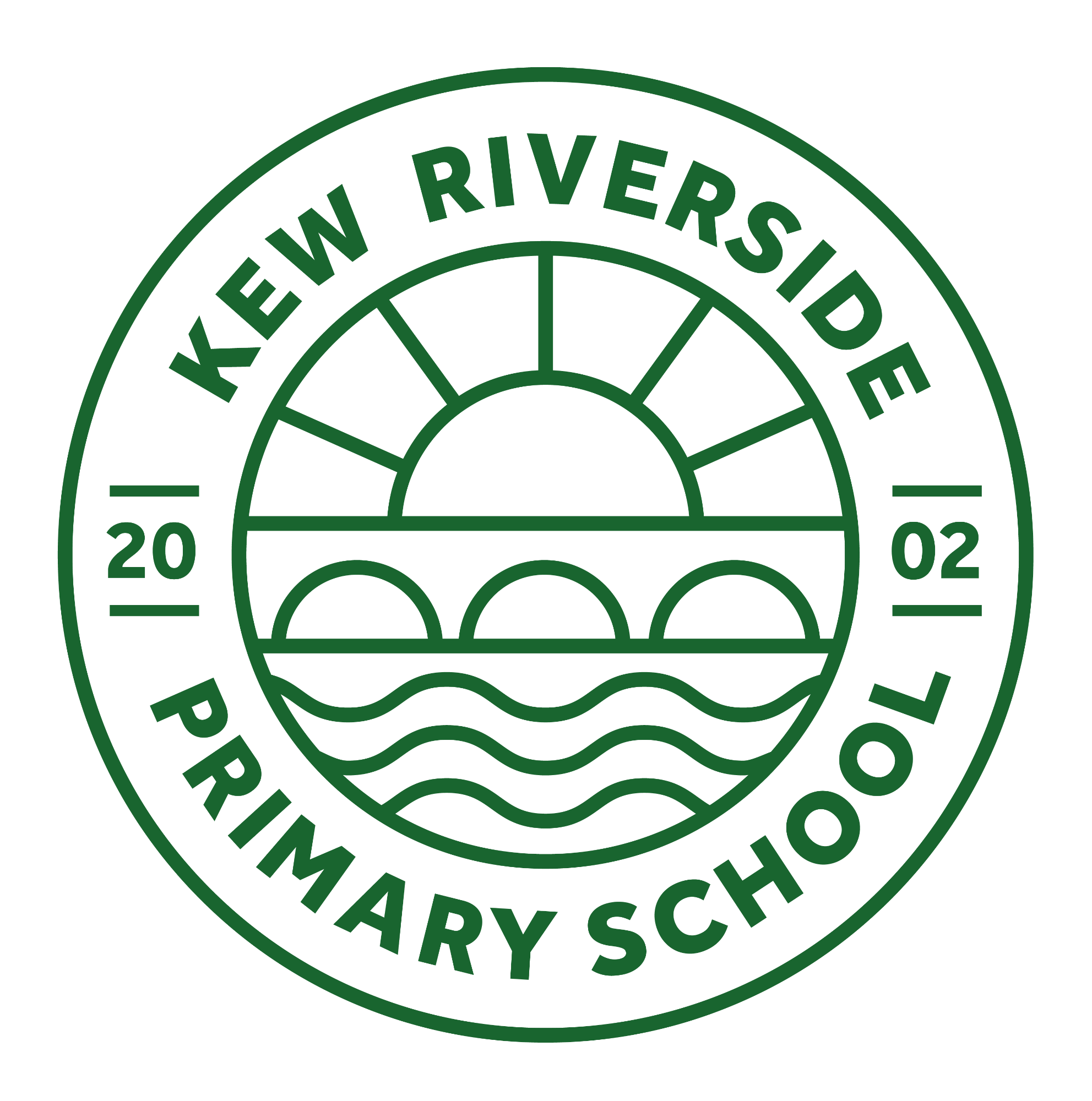Reading & Phonics
“The more that you read, the more things you will know.
The more that you learn, the more places you will go”, Dr Seus.
Our Intent
Phonics (Reading & Spelling)
At Kew Riverside we believe that all our children can become fluent readers and writers. We adopt an explicit and systematic approach to the teaching of phonics and reading, using the Little Wandle Letters and Sounds Revised phonics programme. Research shows that the most effective way of teaching young children to read is through phonics, when this is taught in a systematic, synthetic way, starting with the easiest letter-sound correspondences and progressing to the more complex. We believe being able to read is integral to children’s learning and development, both in school and beyond.

To ensure children become independent, confident readers at the earliest possible opportunity, we teach children the necessary phonics skills to enable them to decode and understand language as they start with us in Reception. We follow the Little Wandle Letters and Sounds Revised progression, which ensures children build on their growing knowledge of the alphabetic code, mastering phonics to read and spell as they move through school.
As a result, our children are able to tackle any unfamiliar words as they read. We also model the application of the alphabetic code through phonics in shared reading and writing, both inside and outside the phonics lesson and across the curriculum. We have a strong focus on language development for our children because we know that speaking and listening are crucial skills for reading and writing in all subjects. Through our approach to teaching phonics, we aim for all of our children to be competent, fluent word readers, and increasingly accurate spellers,, by the end of Key Stage One to ensure they are ready to ‘read to learn’ as they start in Key Stage Two.
By the end of Key Stage 1 we aim for children to:
- confidently apply phonic knowledge and skills as the main route to decode unknown words
- segment and blend words with confidence so that decoding skills provide a sound foundation for reading and spelling words
- have a good level of phonemic awareness, using e.g. knowledge of aural discrimination and rhyme to aid reading and spelling
- apply their phonic knowledge to access learning across all areas of the curriculum
- know the 40+ phonemes within the English language, including relevant alternatives
- recognise taught tricky (common exception) words by sight and spell these, identifying unusual correspondences between letters and sounds
- read confidently for meaning and regularly enjoy reading for pleasure.
Because we believe teaching every child to read is so important, we have a Reading Leader who drives the early reading programme in our school. This person is highly skilled at teaching phonics and reading, and they monitor and support our reading team, so everyone teaches with fidelity to the Little Wandle Letters and Sounds Revised programme.
   |
KS2 (Reading and Spelling)
As the children progress from their Little Wandle approach to reading and spelling, they graduate to learning their spellings through the Spelling Shed programme of learning. Spelling Shed's approach to spelling involves the relationship between sounds and written symbols as well as using morphology to help spell through meaning.
The carefully selected word lists and engaging activities provide opportunities to incorporate phonics and meaning to strengthen spelling skills and build vocabulary acquisition.
More information on the different ways in which spellings are taught can be found here: https://www.spellingshed.com/en-gb/scheme-guidance
Reading
As educational practitioners, we are passionate children that children should love reading. Not only do we want children to acquire the skills and knowledge they need to read fluently and understand the variety of texts they are exposed to, we want children to WANT to read. To promote a love of reading, we ensure all children have regular access to our wonderful library and beautifully presented book corners which the children have helped to design themselves. Both are full of a diverse range of texts which children can enjoy. We have a comfortable reading garden outside in the warmer months, where children can sit with friends and read a book.
With our new curriculum, we launched our read aloud texts. This showcases all adults’ love of reading and children are read aloud too frequently by an adult in their class. Children and adults can choose from a wide range of diverse texts chosen from the highly acclaimed CLPE text selections (please see below for an example of our read aloud texts).
Teaching of Reading in Key Stage 2
To smoothly transition from Little Wandle to KS2, our children follow a process of reading which builds on the great foundations provided in EYFS and KS1. The children follow a five-day process which incorporates: decoding & understanding vocabulary, reading with prosody, comprehension skills and reading for pleasure.

Community of readers
Kew Gardens is a wonderful community and our fantastic librarians in Kew and East Sheen visit school regularly to lead assemblies and share their knowledge and love of books. We have links with the incredible charity Expect Amazing, who worked closely with Café Torelli, to donate over £1,000 worth of new texts! Keeping our children updated with the latest publications in fiction and non-fiction texts. We celebrate literature though our World Book Day Celebrations, high-quality texts taught in English (see English Maps), Catch Me Reading Competitions and Drop Everything And Read assemblies.
World Book Day


Well done to all our Get Caught Reading Winners! We hope you enjoy your celebratory book!
